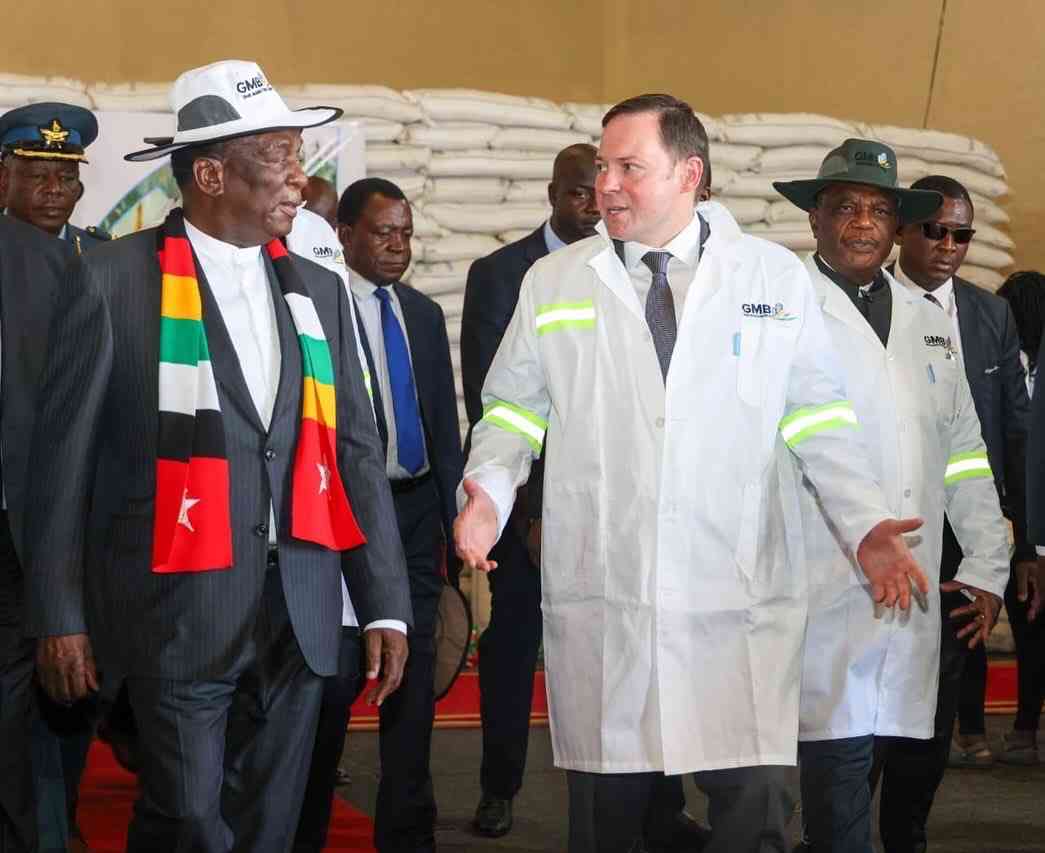
RUSSIA yesterday donated 25 000 tonnes of wheat and 23 000 tonnes of fertiliser to Zimbabwe.
The donation which was handed over by ambassador of the Russian to Zimbabwe, Nikolai Vladimirovich Krasilnikov, was officially received by President Emmerson Mnangagwa at the Grain Marketing Board depot in Harare.
Mnangagwa expressed gratitude to the Russian government, describing the donation as timely.
“We welcome Russia’s continued support in our ongoing efforts to consolidate and strengthen our agriculture sector towards building greater resilience for climate change adaptation and guaranteeing sustained national food security,” Mnangagwa said.
“We, thus, continue to learn from the expertise and best practices from the Russian Federation, as we scale up the implementation of our comprehensive Agriculture and Food Systems Transformation Programme.”
The wheat donation comes hard on the heels of government claims that the country has been producing surplus wheat to meet national requirements in the past few seasons.
“The past two seasons have seen our country attain great successes in wheat production and productivity, with surplus output in relation to our national wheat requirements,” Mnangagwa repeated the claim yesterday.
Mnangagwa said his government has taken a deliberate policy position to adopt a wheat-based food security intervention in response to climate change-induced droughts.
- Mavhunga puts DeMbare into Chibuku quarterfinals
- Bulls to charge into Zimbabwe gold stocks
- Ndiraya concerned as goals dry up
- Letters: How solar power is transforming African farms










